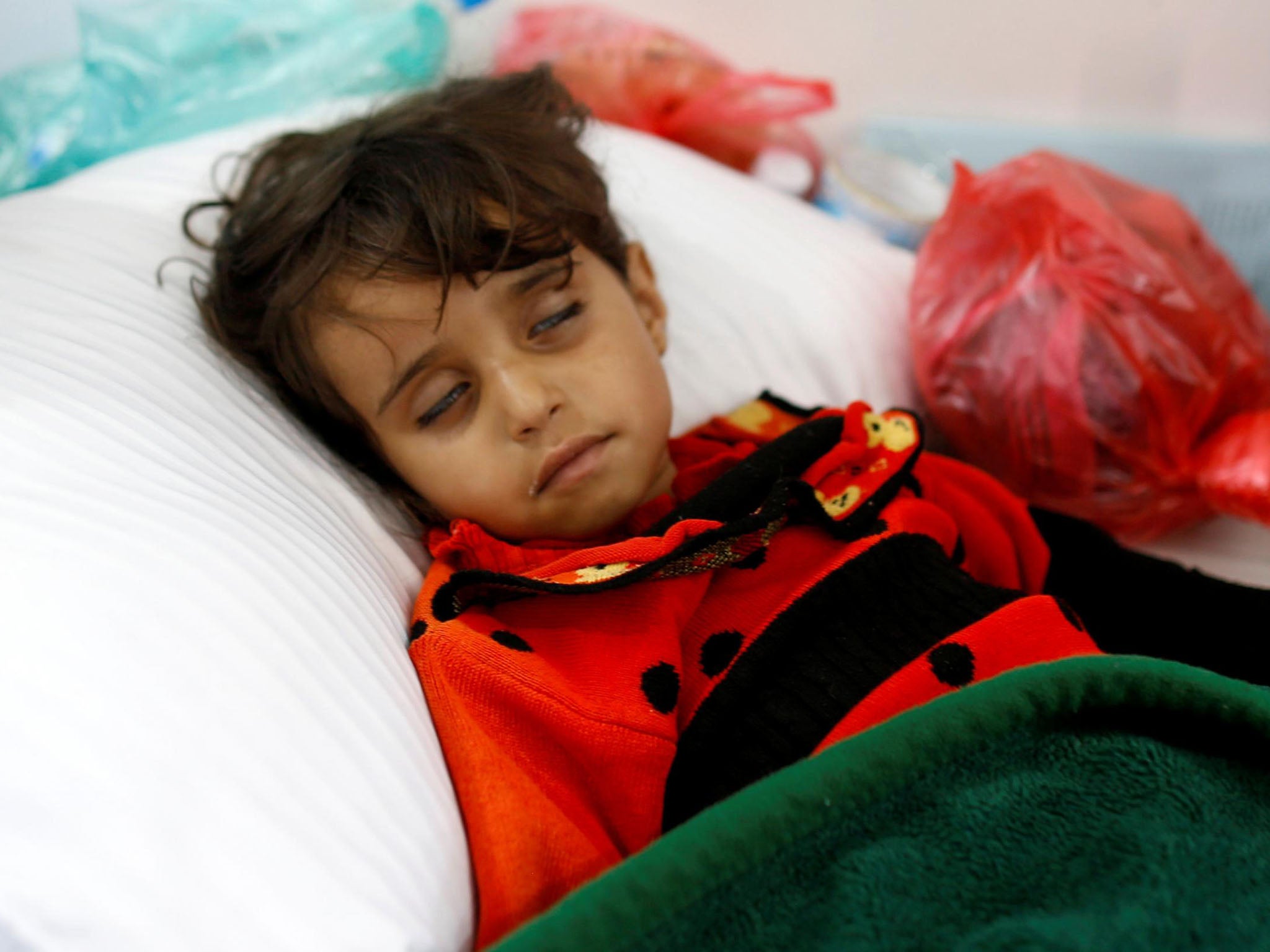Saudi Arabia donates $67 million to tackle cholera epidemic in Yemen
More than 200,000 cases of cholera have broken out as Saudi Arabia wages war against Houthi rebels

Saudi Arabia says it has donated $67m (£52m) to combat a cholera outbreak in Yemen which has hit more than 200,000 people and been declared the "world's worst" by global health bodies.
More than 5,000 people are contracting the disease every day in Yemen and Unicef and the World Health Organisation (WHO) said it was growing almost impossible to control its spread.
The war in Yemen, to which Saudi Arabia is itself a leading contributor as part of an Arab military coalition, has caused dire disruption to the country’s infrastructure and healthcare system.
Cholera has already killed 1,300, a quarter of them children, officials said. More than 200,000 cases have been diagnosed, and this is expected to rise to 300,000 by September, WHO senior medical consultant Dr Xavier de Radiguès told CNN.
Unicef, the WHO and its partners will receive the $66.7 million from Saudi Arabia to spend on countering the epidemic.
Cholera is easily prevented by basic sanitation such as washing hands and food with clean water. But it spreads fast in war zones, where contaminated water and poor hygiene are rampant.
More than 14.5 million people in Yemen do not now have regular access to clean water and sanitation.
The conflict has led to 30,000 local health workers - the front line against any epidemic - not being paid for ten months.
Staff at state utilities such as water, rubbish collection and electricity, have suffered the same.
The sewers in Sana’a, the Yemeni capital, stopped functioning on 17 April, according to the BBC. Ten days later, cholera had broken out.
The war is also preventing healthcare supplies reaching Yemen’s hospitals, limiting the relief they can offer cholera victims. The International Committee of the Red Cross (ICRC) is currently the largest single provider of cholera management in Yemen, handling 20 per cent of cases.
"Saudi Arabia is committed to working closely with our aid partners to effectively address the cholera and general humanitarian situation in Yemen," said Dr Abdullah bin Abdulaziz Al-Rabeeah, adviser at the royal court and general supervisor of King Salman Humanitarian Aid and Relief Center.
'We will continue to work with our partners across a broad range of humanitarian and relief efforts for the people of Yemen.”
Saudi’s new Crown Prince Mohammed bin Salman bin Abdulaziz, who replaced his cousin as next in line to the throne on 21 June, has ordered the donation.
“Cholera is one form of acute, watery diarrhoea, a symptom that can be caused by any number of bacteria, viruses and parasites,” Save The Children's Caroline Anning told The Independent last week.
“In its most severe form, cholera is one of the swiftest lethal infectious diseases known – characterised by an explosive outpouring of fluid and electrolytes within hours of infection that, if not treated appropriately, can lead to death within hours. In places where drinking water is unprotected from faecal contamination, cholera can spread with stunning speed through entire populations.”
Humanitarian organisations are calling the fighting in Yemen "the forgotten war", as international awareness of the conflict is so low. A YouGov poll in March showed more than half of British people don't know about it.
The fighting has displaced three million people and left 18 million relying on humanitarian assistance to survive, according to Amnesty International.
Join our commenting forum
Join thought-provoking conversations, follow other Independent readers and see their replies
Comments
Bookmark popover
Removed from bookmarks